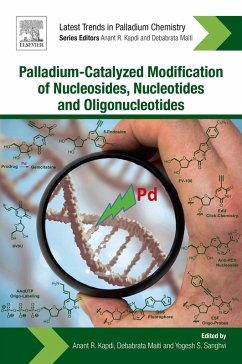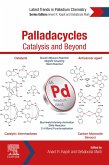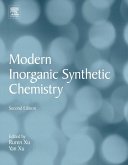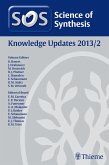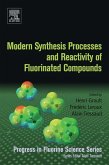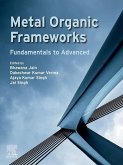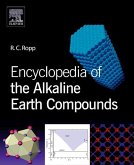Palladium-Catalyzed Modification of Nucleosides, Nucleotides and Oligonucleotides describes the procedures and protocols related to the modification of nucleosides, nucleotides and oligonucleotides via Pd-mediated cross-coupling processes. The book highlights the growing area of nucleic acid modification and how Pd-mediated coupling reactions can assist this development. Users will find key synthetic protocols for these reactions in this latest volume in the Latest Trends in Palladium Chemistry series. As most of the research in the field of antiviral agents has centered on the use of modified nucleosides that have exhibited promising activity, this book provides an up-to-date reference for both professionals in industry and other interested parties.
- Provides synthetic routes for useful nucleoside molecules, information otherwise found only through time-consuming literature searches
- Covers metal-mediated and metal-catalyzed cross coupling processes of nucleosides and related compounds
- Includes Suzuki-Miyaura, Stille and Sonogashira reactions, as well as C-H bond functionalization
- Highlights the growing area of nucleic acid modification and how Pd-mediated coupling reactions can assist
Dieser Download kann aus rechtlichen Gründen nur mit Rechnungsadresse in A, B, BG, CY, CZ, D, DK, EW, E, FIN, F, GR, HR, H, IRL, I, LT, L, LR, M, NL, PL, P, R, S, SLO, SK ausgeliefert werden.

